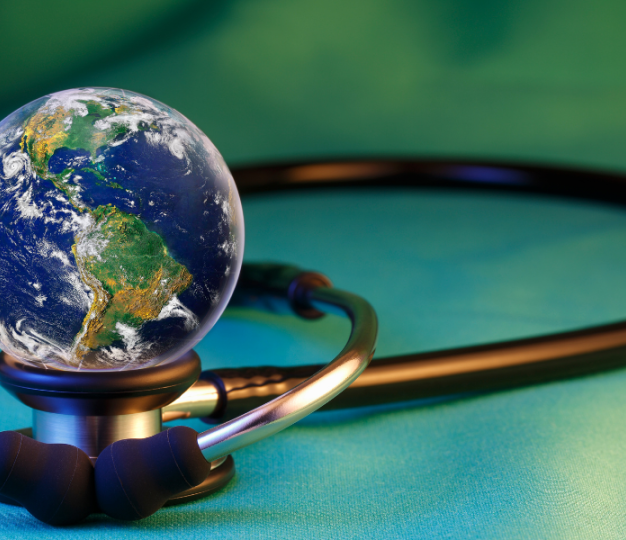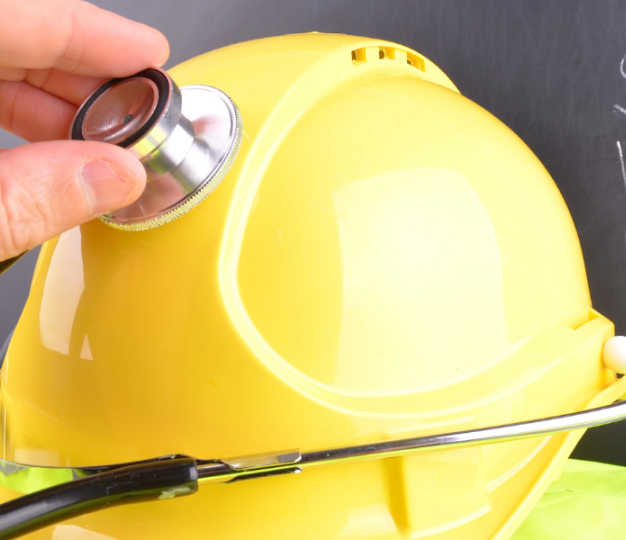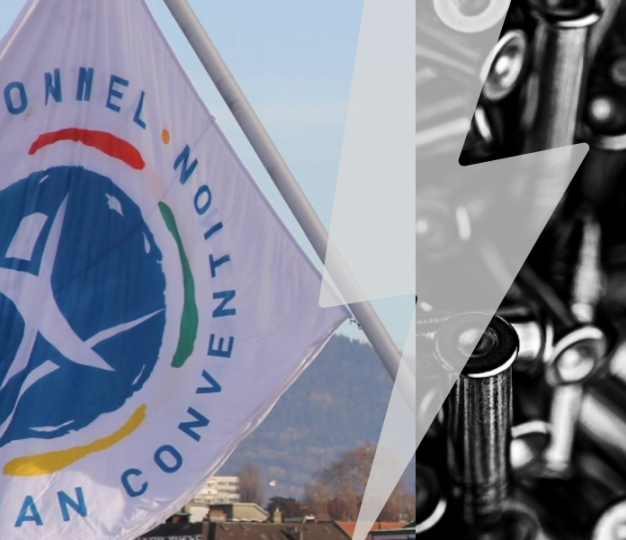The European Union and the United Nations
The European Union works closely with the numerous United Nations bodies, as well as other organisations based in Geneva, to promote international peace, human rights and development.
EU major contributor to the UN
The European Union (EU) is committed to effective multilateralism, with the United Nations (UN) at its core. This is a central element of the EU’s external policy. To respond successfully to global crises, threats and challenges, the international community needs an efficient multilateral system, founded on universal rules and values.
The EU and its countries play a crucial role as the major contributor to the UN system. The EU is the single largest financial contributor to the UN system. The EU countries fund 38 % of the UN's regular budget, more than two fifths of UN peacekeeping operations, and about one half of all UN Member States' contributions to UN funds and programmes. The European Commission contributes more than USD 1.35 billion in support of UN external assistance programmes and projects. The EU, EU institutions and EU countries combined, provide 56 % of Global Aid to Development and are one of the world's largest donors of humanitarian assistance.
EU contributes to the development of international law
The EU has played an important role in developing and implementing UN Conventions and Protocols and taken an active part in UN global conferences. As an observer within the UN, the EU does not vote but is party to more than 50 UN multilateral agreements and conventions — the latest being the Convention on the rights of persons with disabilities — and actively participates in and contributes to the deliberations. It has obtained a special ‘full participant’ status in a number of important UN conferences.
Lisbon Treaty enhances EU international role
The Lisbon Treaty gives the EU a single legal personality. It also provides for the EU to replace and succeed the European Community, taking over all its rights and obligations, including with regard to its status within the UN. As a result, the EU can sign contracts, be part of an international convention or be a member of an international organisation, such as the FAO in Rome.
With Resolution A/65/276, which was adopted by the UN General Assembly on 3 May 2011, the UN has granted the EU new participating rights at the United Nations General Assembly in New York, allowing EU representatives to present EU agreed common positions, make interventions, present proposals and circulate EU communications as official documents. In Geneva, depending on the internal rules of each international organisation, the EU common position is expressed through either a member of the EU Delegation or a representative of one of the EU countries intervening on behalf of the EU.
Human Rights
The EU is founded upon values of human dignity, democracy, equality, the rule of law and respect for human rights. These values are embedded in the Treaty on the European Union and the EU Charter of Fundamental Rights. The EU has made promotion of human rights and democracy a central aspect of its external policy, reflected in trade and cooperation agreements, and a wide range of programmes and activities. Read here the latest EU annual report on Human Rights and Democracy in the world.
Read here the EU priorities at United Nations human rights fora.
The EU is very active in the Geneva-based UN Human Rights Council (HRC), which aims to strengthen the protection of human rights around the globe. The EU is actively involved in all of the HRC’s sessions, coordinating statements and negotiating resolutions.
The EU uses recommendations issued during the Universal Periodic Review (UPR) of human rights worldwide in its dialogues with other countries. The EU is also involved in several intergovernmental bodies dealing with specific human rights issues, such as the World Conference Against Racism, a possible framework on private military and security companies, and the right to development.
Global Health
The European Union and its Member States, for the second year in a row, have spearheaded a resolution at the World Health Assembly to strengthen WHO preparedness and response to health emergencies. This resolution is an important step in our collective endeavor to draw all the lessons from the Covid-19 pandemic and to improve our systems and tools for prevention, preparedness and response, by building back better. The EU and a group of countries from across all WHO regions have also built a large coalition to ensure that the 74th session of the World Health Assembly paves the way for establishing a process for a WHO convention, agreement or other international instrument on Pandemic Preparedness and Response.
The Delegation works to ensure the coherence of EU positions in Geneva by making sure all respect the ‘Health in all Policies’ approach. This includes making medicines accessible and tackling global health threats.
Working with the WHO
The EU and the World Health Organisation (WHO) work together to promote public health worldwide. This includes sharing health information, health monitoring, disease surveillance, health-related research and provision of resources and secondment staff.
Humanitarian Affairs and Migration
The EU and its countries are the world’s biggest donors of humanitarian aid, accounting for over half of such aid worldwide. The humanitarian assistance covers a wide range of needs, from shelter, food, water and sanitation through to protection of refugees and internally displaced persons.
In Geneva, the EU Delegation’s Humanitarian Affairs and Migration section maintains close working relations with the main UN bodies dealing with humanitarian aid, including the UN High Commissioner for Refugees (UNHCR), the International Organisation for Migration (IOM), the Office for the Coordination of Humanitarian Affairs (OCHA), the World Health Organisation (WHO), the UN Children's Fund UNICEF and the liaison offices of the World Food Programme (WFP) and the Food and Agriculture Organisation (FAO).
Migration means both opportunities and challenges for Europe. In recent years, the EU’s external borders — especially in the Mediterranean Sea — have been the scene of human tragedies. No EU country can be left alone to address such large and sudden migratory pressure. European migration policy seeks to balance the EU’s commitments to human rights, border control, social cohesion and economic opportunities.
The EU works together with international organisations in Geneva to tackle these challenges. The EU works actively with partners to tackle migration. In Geneva, these include the United Nations High Commission for Refugees (UNHCR), the International Organisation for Migration (IOM) and the Global Forum on Migration and Development (GFMD).
Working with UNHCR
UNHCR is the UN agency dedicated to protecting refugees, asylum seekers and stateless persons. The EU and its countries work in close partnership with UNHCR and are its second biggest donor. The EU recognises asylum as a fundamental right and, in this spirit, is working to establish a Common European Asylum System (CEAS). The CEAS aims to ensure a fair and effective asylum system across all EU countries. The EU and UNHCR hold regular high-level meetings in Geneva.
See all EU statements to the UNHCR - High Commissioner for Refugees
Working with the IOM
The EU is an observer at the IOM and is a major donor to the organisation. It regularly provides input to the International Dialogue on Migration. The EU and IOM have signed a Framework Agreement to streamline financial and administrative aspects of cooperation, and agreed a Strategic Partnership to better tackle migration, development, humanitarian response and human rights issues.
Working with UNISDR
The UN Office for Disaster Risk Reduction (UNISDR) aims to coordinate disaster risk reduction. Disaster risk reduction limits damage caused by natural hazards such as earthquakes, floods, droughts and cyclones through prevention and preparedness. The EU recognises the importance of disaster preparedness in the European Consensus on Humanitarian Aid.
In Geneva, the EU is a member of the UNISDR Support Group, meeting every two months to discuss activities related to disaster risk reduction throughout the world. The EU also plays an active role in the Global Platform for Disaster Risk Reduction in Geneva, sending a strong delegation of experts.
Working with the Red Cross family
The EU provides extensive support for Red Cross operations, and maintains close working relations with the Red Cross both at headquarters in Geneva and in the field. The EU and its countries are leading financial contributors to the Red Cross.
Working with NGO partners
The EU works in partnership with over 200 non-governmental organisations (NGOs) delivering humanitarian aid in the field on its behalf. In Geneva, the EU Delegation supports NGOs’ important advocacy role with UN agencies and donors and protects civil society space in UN fora.
Economy and sustainable development
The EU is pushing to steer globalisation towards sustainable development. That is why the EU is working to achieve objectives such as the eradication of poverty, the closing of the development gap, and the protection and sustainable use of environmental resources. The EU works with a number of UN organisations in Geneva to achieve these objectives.
Working with UNECE
The UN Economic Commission for Europe (UNECE) seeks to improve economic integration and development in Europe. UNECE sets best practices, standards and norms in eight sub-programmes: environment; transport; statistics; sustainable energy; trade; economic integration; forestry and timber; and land and housing. The Delegation coordinates EU countries’ positions and represents the EU as a whole at the monthly meetings of the Executive Committee.
See all EU statement to the UNECE - UN Economic Commission for Europe
Working with UNCTAD
The EU promotes sustainable development internationally through trade, investment and Official Development Aid (ODA). The EU gives special attention to Least Developed Countries (LDCs). To this effect, the EU supports the United Nations Conference on Trade and Development (UNCTAD) and provides funding for almost all of its activities. The EU Delegation coordinates member countries’ positions and represents them in all UNCTAD bodies and proceedings.
Established in 1964, UNCTAD promotes the integration of developing countries into the world economy. The organisation acts as a forum for governments and experts, undertakes research and data collection, and provides technical assistance to developing countries. The UNCTAD Conference is the organisation’s most important high-level event, with meetings of ministers held every four years to adopt the mandate for the next four year period.
See all EU statements to the UNCTAD - UN Conference on Trade and Development
Working with WIPO
The EU promotes intellectual property rights worldwide and in particular through the World Intellectual Property Organisation (WIPO), to boost innovation and creativity. The EU supports WIPO’s efforts to harmonise patent law and industrial design rights, protect broadcasters and enforce its treaties. The EU has permanent observer status at WIPO and is a special member without the right to vote on several WIPO committees.
See all EU statements to the WIPO - World Intellectual Property Organization
Working with ITU
The EU works to ensure that information and communications technologies create jobs, growth and better services for all. In this context, the EU provides funding and support for the International Telecommunications Union (ITU). The ITU is responsible for the allocation of radio spectrum and satellite orbits, the standardisation and development of ICTs worldwide, and the promotion of digital access to underserved communities.
Labour
The International Labour Organisation (ILO) is the oldest United Nations Specialised Agency and is mandated to promote social justice. It develops, promotes and supervises labour standards and provides technical assistance to its constituents.
The ILO has a unique tripartite structure that brings together workers, employers and governments.
The EU and ILO can rely on a longstanding partnership, set up as early as 1958 and intensified progressively on the foundation of shared values. Successive Exchanges of Letters, renewed last in 2001, provide the formal basis of the cooperation.
The EU works with the ILO to promote decent work for all. The Decent Work Agenda is based on an integrated approach covering productive and freely chosen employment, full respect for rights at work, including the core labour standards, social dialogue and social protection which encompasses health and safety at work. Anti-discrimination and gender equality are cross-cutting issues.
The EU concluded a strategic partnership with the ILO in 2004 to ensure the effective uptake of decent work and related issues at all levels. In its development cooperation, the EU promotes employment and decent work for an inclusive growth framework, to allow people to participate in, and benefit from, wealth and job creation. The EU also encourages partner countries to include social protection floors in their national policies.
The ILO is an important partner in the implementation of the external dimension of Europe 2020, the EU's multifaceted strategy for sustainable growth and jobs.
The world financial and economic crisis and its severe impacts remain a core concern for both the EU and ILO. The EU and ILO cooperate, including in international fora, such as G20, to promote sustainable and job-rich recovery.
The EU encourages and supports the worldwide ratification and implementation of the ILO Conventions on core labour standards and other Conventions that have been classified by the ILO as up to date.
Disarmament
The EU strongly supports a multilateral approach to security, disarmament and non-proliferation of weapons of mass destruction (WMDs) to ensure international peace. It wants all countries to adopt international treaties relative to these issues and see their full implementation.
Geneva is home to the Conference on Disarmament (CD) — the only organisation dedicated to multilateral disarmament negotiations — and the Geneva branch of the UN Office for Disarmament Affairs. Geneva also hosts dozens of institutions working in the field of security policy.
The EU participates in the work of the CD through the delegation of the EU country holding the rotating presidency of the EU Council. The EU advocates for the expansion of the CD’s membership and the participation of civil society.
It is one of the largest donors to the UN Office for Disarmament (UNODA). These voluntary contributions have supported a wide range of activities, from controlling small arms and stockpiling of ammunition to strengthening the biological and toxic weapons convention.
Disarmament Treaties
Over 160 countries, including all EU Member States, are party to the 1997 Convention on the Prohibition of the Use, Stockpiling and Transfer of Anti-Personnel Mines and on their Destruction, also known as the Ottawa Convention or the Mine Ban Treaty. The EU is working to implement commitments on victim assistance and mine clearance, as well as to make all countries adopt the treaty. The EU and its countries provide millions of euros for anti-mine action.
The Biological Weapons Convention (BWC) is the first multilateral treaty banning the production and use of an entire category of weapons. Some 170 countries are party to the BWC, including all EU countries. The EU has launched the Centres for Excellence (CoE) on Chemical, Biological, Radiological and Nuclear Risk Mitigation (CBRN), which aim to enhance countries’ resilience against such risks whether of criminal, accidental or natural origin.
All EU countries are party to the Convention on Prohibitions or Restrictions on the Use of Certain Conventional Weapons Which May Be Deemed to Be Excessively Injurious or to Have Indiscriminate Effects, also known as the Convention on Certain Conventional Weapons (CCW). The CCW bans or restricts the use of various types of weapons that are considered to cause unnecessary suffering or that indiscriminately affect soldiers or civilians.
The Cluster Munitions Convention is a new treaty within the CCW framework. It prohibits the use, production, transfer and stockpiling of cluster munitions that cause unacceptable harm to civilians. It also aims to destroy existing stockpiles of weapons, clear contaminated areas and assist survivors and affected communities.
EU anti-mine action has extended from anti-personnel mines to all cluster munitions remnants. EU donations for clearance operations and victim assistance do not differentiate between the types of explosive remnants.






